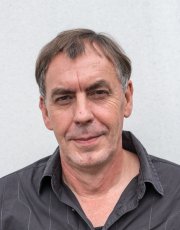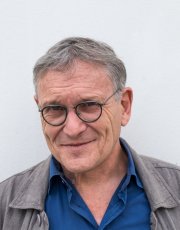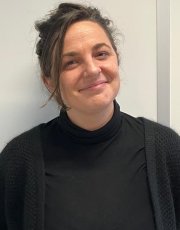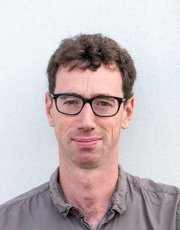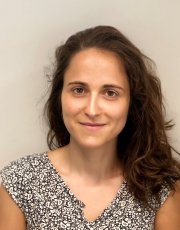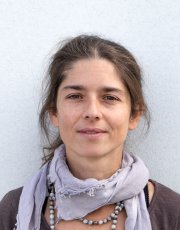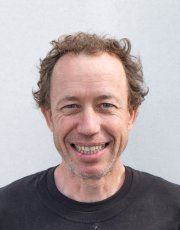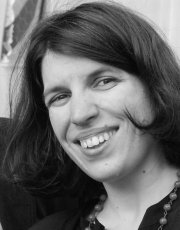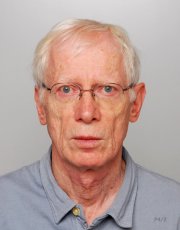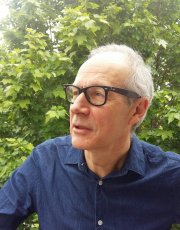Under the auspices of the Fondation Médecins Sans Frontières, the Centre de Réflexion sur l'Action et les Savoirs Humanitaires (CRASH) is a unique structure in the world of NGOs. Its purpose is to inspire debate and critical reflexion on field practices and public positions, in order to improve the association's actions.
The CRASH team consists of six permanent employees, from the field, with university training. Backed by a scientific committee made up of volunteer research professionals, it works closely with the operational leadership of Médecins Sans Frontières.
CRASH team members conduct and direct studies and analysis of MSF actions. They participate in internal training sessions and assessment missions in the field. They represent the association at meetings, conferences, and other research and discussion forums, particularly those connected with universities, IGOs and NGOs.
To know more, read the article published originally in French Le Crash-MSF, "une structure critique sur nos opérations"
Addressing political, medical and management issues, Crash conducts research on topics arising from MSF concerns that often reflect the concerns of the humanitarian aid world in general. Its research is presented in the form of publications, articles or books as well as discussion forums and conferences.
The knowledge management, assessment and feedback work conducted by Crash combines methods derived from epidemiology and social sciences. These cross-disciplinary methods benefit all fields addressed by the team, particularly research, training and consulting.
In partnership with universities, the Crash team develops in-house and diploma courses designed for the association’s operational managers. It also participates in in-house courses and its staff members teach university courses on an individual basis.
Crash advises MSF leaders as they formulate their positions on operational and public matters. To that end, it acts at the request of the association’s president, directors and operational managers on project-related issues, current events and organisational concerns.
Crash actively distributes its research through a website and social media while also organising or participating in seminars and workshops. In this way, we hope to reach not only aid workers and their colleagues worldwide but also academics, journalists and anyone in the general public interested in these issues.
The permanent team is formed by six directors of studies and a dissemination officer. Every year since 2020, a studies manager joins the Crash for a period of twelve months. This position is designed for mobility between headquarter and field, or between departments.
MSF-Crash : Team coordinator
Anthropologist specialised in international relief issues. Marion Péchayre has a previous practical experience having endorsed management responsibilities both in the field and at the head office of Solidarités International. She holds a PhD in Development Studies (SOAS) and an MA in International Management (ESCP Europe). She teaches at the Paris School of International Affairs and at the Humanitarian and Conflict Response Institute. Her main publications are: "Politics, Rhetoric, and Practice of Humanitarian Action in Pakistan" (in "The Golden Fleece: Manipulation and Independence in Humanitarian Action" Boulder, Colorado: Kumarian Press, 2012), and "Impartialité et Pratiques de Triage En Milieu Humanitaire. Le Cas de Médecins Sans Frontières Au Pakistan" (in "La Médecine Du Tri. Histoire, Éthique, Anthropologie" PUF, 2014).
Medical doctor, specialized in tropical medicine, emergency medicine and epidemiology. In 1989 he went on mission with Médecins sans Frontières for the first time, and undertook long-term missions in Uganda, Somalia and Thailand. He returned to the Paris headquarters in 1994 as a programs director. Between 1996 and 1998, he served as the director of communications, and later as director of operations until May 2000 when he was elected president of the French section of Médecins sans Frontières. He was re-elected in May 2003 and in May 2006. From 2000 to 2008, he was a member of the International Council of MSF and a member of the Board of MSF USA. He is the co-editor of "Medical innovations in humanitarian situations" (MSF, 2009) and Humanitarian Aid, Genocide and Mass Killings: Médecins Sans Frontiéres, The Rwandan Experience, 1982–97 (Manchester University Press, 2017).
Medical doctor, specialized in tropical medicine and epidemiology. Involved in humanitarian action since 1977, he has been on numerous missions, mainly in contexts of armed conflicts and IDP situations. President of Médecins sans Frontières from 1982 to1994, he also teaches at the Humanitarian and Conflict Response Institute (HCRI) and is a regular contributor to Alternatives Economiques. He has published several books and articles, including "Guerre humanitaires ? Mensonges et Intox" (Textuel, 2018), "La Médecine Humanitaire" (PUF, 2010), "Penser dans l'urgence" (Editions du Seuil, 2006) and "Utopies Sanitaires" (Editions Le Pommier, 2000).
Studies Manager
Mathilde holds a research master's degree in African history and a professional master's in development project management. Since 2012, she has carried out numerous field missions for various international NGOs in contexts of natural disasters and conflict (Chad, DRC, Iraq, Nepal, Philippines, Haiti, etc.). After working as a monitoring and evaluation officer and then as a project manager, she joined MSF in 2020 as project coordinator. With MSF, she leaves for Yemen, then with the Swiss section's emergency team, supporting evaluations and project openings in Madagascar, South Sudan and Ukraine. In 2023/2024, she joins the CRASH team as Studies Manager to help organize critical reflection training on MSF operations and lead a research project on North Kivu (DRC).
Director of studies at Crash / Médecins sans Frontières, Michaël Neuman graduated in Contemporary History and International Relations (University Paris-I). He joined Médecins sans Frontières in 1999 and has worked both on the ground (Balkans, Sudan, Caucasus, West Africa) and in headquarters (New York, Paris as deputy director responsible for programmes). He has also carried out research on issues of immigration and geopolitics. He is co-editor of "Humanitarian negotiations Revealed, the MSF experience" (London: Hurst and Co, 2011). He is also the co-editor of "Saving lives and staying alive. Humanitarian Security in the Age of Risk Management" (London: Hurst and Co, 2016).
Since April 2018, Elba has been in charge of dissemination at CRASH. Elba holds a Master's degree in History of Classical Philosophy and a Master's degree in editorial consulting and digital knowledge management. During her studies, she worked on moral philosophy issues and was particularly interested in the practical necessity and the moral, legal and political prohibition of lying in Kant's philosophy.
Graduated in International relations (Institut d'Etudes Politiques de Paris), Logistics in humanitarian settings (Bioforce-Développement) and Anthropology (University Paris I), Judith Soussan joined MSF in 1999. After missions in Sri Lanka, Ethiopia, Sudan and the Palestinian territories, she worked in Paris, in particular on protection of civilians. Following a few years break from MSF working as a radio reporter, she has come back to Crash in 2015. She contributed to the book "Saving lives and staying alive. Humanitarian Security in the Age of Risk Management" (chapter "Security Issues and Practices in an MSF Mission in the Land of Jihad" - London: Hurst and Co, 2016).
A political scientist by training, Fabrice Weissman joined Médecins sans Frontières in 1995. First as a logistician, then as project coordinator and head of mission, he has worked in many countries in conflict (Sudan, Ethiopia, Eritrea, Kosovo, Sri Lanka, etc.) and more recently in Malawi in response to natural disasters. He is the author of several articles and collective works on humanitarian action, including "In the Shadow of Just Wars. Violence, Politics and Humanitarian Action" (ed., London, Hurst & Co., 2004), "Humanitarian Negotiations Revealed. The MSF Experience" (ed., Oxford University Press, 2011) and "Saving Lives and Staying Alive. Humanitarian Security in the Age of Risk Management" (ed., London, Hurst & Co, 2016). He is also one of the main hosts of the podcast La zone critique.
Social science researchers support the members of the Crash team in their reflections and productions.
Caroline Izambert is a former history and geography teacher and has a doctorate from the EHESS. Her thesis focused on access to healthcare for foreigners in France. She is currently head of the health promotion and harm reduction department of the city of Paris' public health department. With Jean-Paul Gaudillière and Pierre-André Juven, she published Pandémopolitique. Réinventer la santé commun (La Découverte, 2021).
Marc Le Pape has been a researcher at the CNRS and then at the EHESS. He is currently a member of the scientific committee of the CRASH. Formerly with the CNRS, Marc Le Pape is currently a researcher at the l'Ehess (Centre d'études africaines). He has carried out research in Algeria, Côte d'Ivoire and Central Africa. His recent studies have focused on the Great Lakes region in Africa. He has co-directed several publications: Côte d'Ivoire, l'année terrible 1999-2000 (2003), Crises extrêmes (2006) et dans le cadre de MSF : Une guerre contre les civils. Réflexions sur les pratiques humanitaires au Congo-Brazzaville, 1998-2000 (2001) and Génocide et crimes de masse. L'expérience rwandaise de MSF 1982-1997 (2016).
Professor Bertrand Taithe studied at the Sorbonne with Professor François Crouzet and began his career as a historian of urban sociology. He later moved into the history of medicine and sexuality and is particularly interested in the history of humanitarian aid. Professor Taithe is a prolific author, Editor of the European Review of History, and Executive Director of HCRI of the Manchester University. His publications are available here.
Nicolas Dodier is a sociologist, director of research at the Institut national de la santé et de la recherche médicale (INSERM) and director of studies at the École des hautes études en sciences sociales (EHESS). His previous research were focused on the working world (Les hommes et les machines, 1995), the medical world (L'expertise médicale, 1993; Leçons politiques de l'épidémie de sida, 2003), and the different ways of reparation for collective disasters (with Janine Barbot: Des victimes en procès, 2023 in press). More recently, he has launched a survey on humanitarian medicine.
Crash supports, in different ways, the following projects: a history of medical neutrality by Xavier Crombé, a history of surgical practices at MSF by Nicolas Dodier (EHESS), Catherine Rémy (EHESS) and Dr Jean Rigal, a history of mental health practices by Laure Wolmark, and finally a study of palliative care in the cancer project in Malawi by Dr Xavier Plaisancie (EHESS).
Xavier Crombé was Director of Studies at MSF-Crash from 2005 to 2008. He is currently working at the Research Unit on Humanitarian Stakes and Practices (UREPH) of MSF in Switzerland to publish a collective essay dealing with issues related to violence in healthcare facilities. He is also teaching humanitarian and migration issues at Sciences Po Paris.
Doctor, graduate in tropical medicine. He began working with MSF in 2016 on issues related to access to HIV care for men in the Homa Bay district of Kenya under the supervision of Jean-Hervé Bradol and Marc Le Pape. This research will form part of his medical thesis, which will be published in a CRASH book. Then, in 2019, he joined the oncology project in Bamako, Mali, as a palliative care doctor and researcher on the trajectories of breast and cervical cancer patients. He worked with MSF in Kinshasa as a doctor in a ward caring for patients living with HIV at the AIDS stage. Since 2022, he has been pursuing a master's degree in the sociology of health at EHESS which, in conjunction with CRASH, has led him to take an interest in palliative care practices in Malawi and the development of the discipline in a humanitarian context.
Clinical psychologist with a master's degree in philosophy. Since 2005, she has worked for Doctors without borders in contexts of violence, armed conflict and migration. She was a psychotherapist and national coordinator of the mental health unit and at Comede (Comité pour la santé pour les exilé-e-s) until 2021. Her research and practice focus on the clinic of exile, trauma and gender-based violence. They question both the techniques and systems of psychological care. Among her publications: "Les lieux de l'exil, subjectivités dans l'espace thérapeutique" (Journal des Anthropologues, Dec. 2018), "Transmettre pour exister: la fonction des récits traumatiques", in the collective work Violence et récit (ed. Hermann, dir. Marie-Caroline Saglio-Yatzimirsky. 2020), and "On ne fait pas de santé mentale. Retour sur la première mission " psy " de MSF" (Alternatives humanitaires, March 2023). She is currently leading a Crash-supported research project on the history, practices and controversies in mental health in MSF's French section.
The MSF FoUndation
The Médecins Sans Frontières Foundation was founded on the initiative of MSF. Since 2015, it has decided to anchor its action around two priority axes: to support the MSF association in its innovation process and to reinforce the competences of the organization.
Read more about The MSF Foundation


